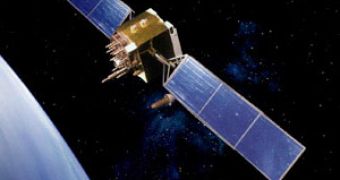For the third time in 16 months, Russian Proton Breeze-M rocket has failed to place a communications satellite into the right orbit, Russian space agency Roscosmos and the International Launch Services (ILS) announced.
The failure rises major concern about the Proton Breeze-M's building quality as well as for the success of a subsequent Mexican satellite, planned to be launched from the same base – Bainkonur Cosmodrome in Kazakhstan – on December 28.
Gazprom Space Systems’ Yamal 402, a 4,600-kilogram (10,141-pound) satellite carrying 46 Ku-band transponders, was meant to be placed into a low-orbital slot at 55 degrees east with an apogee of 25,696 kilometers (15,966 miles) and a perigee of 7,470 kilometers (4,641 miles) - the points of closest approach or biggest distance of a body from a focus on its elliptical orbit.
After a successful first launch stage, the rocket placed the satellite on a 26-degree inclination into an about 3,100-kilometer (1,926-mile) perigee, determining the failure of its initial plans, Space reports.
Vladimir Popovkin, head of Roscosmos, declared an investigation team would be designated to determine the actual causes of the failure, meanwhile other Proton-M launches would be suspended.
Breeze-M's current failure is the third since August 2011, when a large Russia Satellite Communications Co. (RSCC), planned for manned missions to the International Space Station (ISS), was lost.
The two failures brought the already-in-crisis Russian space industry a considerable loss. Russia's space field is currently registering a deeply worrying situation, with its Kazakhstan base bringing the Russian government an annual expense of about $115 million (€903.2 million).
Russian officials say their industry is growing considerably more expensive and thus inefficient and uncompetitive. “Unless we undertake extreme measures, the sector will be uncompetitive within three-four years,” Vladimir Popovkin declared in a statement.
“If nothing changes, we won’t be able to sell [Russian space technology] in 2015, because Western equipment will be priced 33 to 50 percent lower,” he added.

 14 DAY TRIAL //
14 DAY TRIAL //